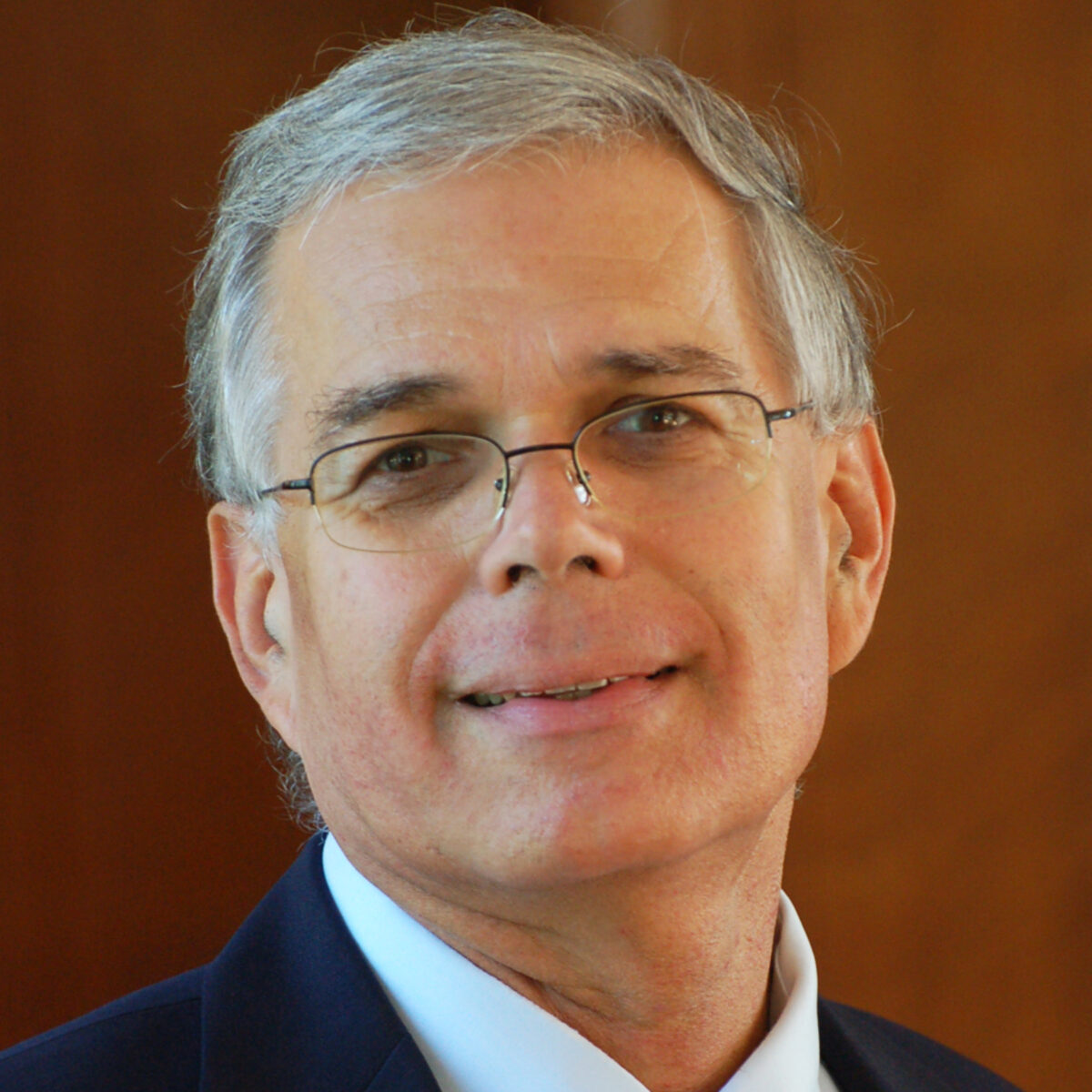10 Things the Church Can Learn About Missions from Jesus, Peter, and Paul
 Dr. Eckhard Schnabel
Dr. Eckhard Schnabel
This article originally appeared on The Gospel Coalition.
When we read the New Testament to learn about contemporary missionary work, we must be aware of the differences between descriptive and prescriptive texts. It’s neither possible nor expected that we copy every detail of the early Christian realities found in Scripture.
For example, Jesus mostly stayed away from cities as he focused on small towns and villages, and he rarely engaged Gentiles, an approach later missionaries don’t imitate. Meanwhile, Peter’s authority in the early church and within the circle of the Twelve is hardly a model for the later mission of the church. And Paul’s approach of regularly preaching in synagogues remains impossible for most Christians.
Nevertheless, there are some clear patterns in the ministries of Jesus, Peter, and Paul that remain instructive for our missionary efforts. Here are 10 things we can learn from them.
1. The will of God and the will of Jesus is foundational to missionary work.
Jesus’s actions were motivated by the will of God the Father who sent him (Matt. 10:40; John 4:34). His “food” was to do the will of him who sent him into the world (John 4:34). Peter was called and sent out by Jesus, a mission that included the prediction of martyrdom (Mark 3:14; Matt. 10:1, 5; John 21:17–19). Paul’s missionary work was also predicated on God’s gracious call and commission by Jesus the Messiah to proclaim him among Jews and Gentiles (Gal. 1:15–16; Acts 9:6, 15–16).
2. The mission of the church is focused on Jesus, the crucified and risen Messiah and Savior.
The four Gospels focus their narratives on Jesus’s last week in Jerusalem, climaxing in his death and resurrection. Jesus asserts that his mission consists in being “lifted up” (i.e., dying on the cross) so that everyone who believes in him may have eternal life (John 3:14–15). Peter asserts that Jesus bore our sins in his body on the cross “that we might die to sin and live to righteousness” (1 Pet. 2:24). Paul doesn’t boast “except in the cross” of our Lord Jesus through which the world has been crucified to Paul and he to the world (Gal. 6:14), since it’s through the cross of Jesus that God reconciles Jewish and Gentile sinners (Eph. 2:16). His proclamation is consistently focused on “Christ crucified” (1 Cor. 1:23, 2:2).
3. Missionary work is also focused on the forgiveness of sins.
In the first miracle of Jesus reported by Mark, Jesus pronounces the forgiveness of sins of the paralyzed man who’s subsequently healed (Mark 2). His service as the divine Son of Man is focused on giving his life as a ransom (Mark 10:45). Peter exhorts thousands of diaspora Jews who were visiting Jerusalem, and the local population, that they must repent and be baptized “in the name of Jesus Christ for the forgiveness of your sins” (Acts 2:38). Paul explains to the Jews in Pisidian Antioch that “through this man forgiveness of sins is proclaimed to [them], and by him everyone who believes is freed from everything from which [they] could not be freed by the law of Moses” (Acts 13:38–39).
4. The oral proclamation of the gospel is the central action of missionary work.
Jesus’s verbal explanation of the presence of the kingdom of God takes precedence over the miracles he performed. When Peter and John are commanded by the Sanhedrin (the highest Jewish court) to refrain from speaking in the name of Jesus, they insist they’re bound to listen to God rather than the Sanhedrin because they can’t keep from speaking of what they’ve seen and heard (Acts 4:20). Paul emphasizes the primacy of “word and deed,” which are sometimes accompanied by the power of signs and wonders (Rom. 15:18–19).
5. Missionaries are dependent on the power of God, the power of the Spirit, and the power of Jesus the Messiah.
Jesus drives out demons by the finger of God (Luke 11:20). The missionary proclamation of Peter and the Twelve from Jerusalem to Judea and Samaria and to the ends of the earth is empowered by the Holy Spirit whom God the Father promised and whom Jesus sends (Acts 1:8). Peter is “filled with the Holy Spirit” as he addresses the highest Jewish court and explains the significance of Jesus’s death and resurrection (Acts 4:8).
Paul knows that Gentiles and Jews, for whom the proclamation of Jesus, the crucified Messiah, is nonsense and a stumbling block, come to faith in Jesus not as the result of rhetorical brilliance but only on account of the demonstration of the power of God and of the Spirit (1 Cor. 2:1–4). When Paul asserts he won’t venture to speak of anything except what the Messiah has accomplished through him to win obedience from the Gentiles, by word and deed (Rom 15:18), he affirms the efficacy of Jesus in his missionary proclamation and pastoral exhortation.
6. The primary strategy of missionary work consists in proclaiming God’s revelation in Jesus to all people without exceptions.
Jesus spoke before crowds and individuals; he interacted with men and women, adults and children, pious Pharisees and lawless sinners, learned scribes and the demon-possessed (Mark 1:21–34; 2:13–17; 5:1–43). Peter explained the significance of Jesus to diaspora Jews visiting Jerusalem, to the citizens of Jerusalem, the members of the Sanhedrin, Judeans, Samaritans, and a military commander in Caesarea (Acts 2:14–41; 4:1–12; 10:34–48). Paul proclaimed the gospel to Jews and polytheists, Greeks and barbarians, men and women, the educated and the uneducated (Rom. 1:14; 1 Cor. 9:19–23).
7. Tactical decisions concerning the geographical location or ethnic focus of missionary work often follow existing opportunities and outside pressures.
At times, Jesus visited Gentile areas to be alone with his disciples, yet he ministered to Gentiles when the occasion demanded it (Mark 7:24–30). Peter visited Samaria when he heard the new Samaritan believers hadn’t received the Holy Spirit, engaging with Simon the sorcerer and proceeding to proclaim the gospel in many Samaritan villages (Acts 8:14–25). He went to Caesarea where he was instrumental in the conversion of a Roman military officer after being prompted by the Lord not to regard Gentiles as unclean (Acts 10:1–11:18).
After his conversion in Damascus, Paul engaged in missionary work in Arabia, the adjacent region, and in Cilicia, the region in which he grew up and where his Tarsian and Roman citizenship would provide political protection after plots against his life in Damascus and Jerusalem (Gal. 1:17, 21–23). Paul was repeatedly forced to leave cities on account of strong local opposition, opening up new areas for the proclamation of the gospel.
8. Missionaries travel as they seek to proclaim the gospel in cities, towns, and villages.
Jesus didn’t wait for people to come to him: he took initiative and traveled to the hamlets, villages, and towns of Galilee (Mark 6:56) and, on occasion, to Jerusalem, the major urban center of Judea (John 2:13; 5:1; 10:22). Peter was active in Jerusalem, in the towns of Lydda and Joppa, and in Samaritan villages (Acts 8:14–25; 9:32–43). Paul traveled throughout the regions and provinces of the northern Mediterranean proclaiming the gospel in towns such as Pisidian Antioch, Lystra, Iconium, and Derbe, and large urban centers such as Antioch in Syria and Ephesus in the province of Asia, as well as smaller villages that belonged to a principal town in a district (Acts 13:48–49).
9. Missionaries work in teams.
Jesus called the Twelve whom he trained to fish for people (Mark 1:17), sending them out two by two (Mark 6:7). Peter and John seem to have formed a team in Jerusalem and Samaria (Acts 3:1; 4:1; 8:14–25). Paul surrounded himself with coworkers, especially Timothy and Titus. (Of the approximately 100 names connected with Paul in the books of Acts and in the Pauline letters, 38 are recognized as his coworkers at one time or another.)
10. Missionaries never glorify themselves; they always glorify God.
Jesus challenges his followers, “Let your light shine before others, so that they may see your good works and give glory to your Father who is in heaven” (Matt. 5:16). Jesus even asserts that if he glorifies himself, his glory means nothing, as it’s God the Father who glorifies him (John 8:54). Peter is concerned that believers who speak the Word of God and serve the congregation glorify God in all things through Jesus because to him “belong glory and dominion forever and ever” (1 Pet. 4:11).
When Judean believers hear that Paul, the erstwhile persecutor, is now proclaiming the gospel, they glorify God (Gal. 1:24). Paul reminds the believers in Asia Minor that their adoption as God’s children through the Messiah triggers their “praise of his glorious grace” (Eph. 1:6). The expansion of Paul’s mission means that the Word of the Lord is glorified everywhere (2 Thess. 3:1) as new and old believers are committed to the one God and Father of all “who is over all and through all and in all” (Eph. 4:6).
 Dr. Eckhard Schnabel, Mary French Rockefeller Distinguished Professor of New Testament, has taught at Gordon-Conwell for over a decade. A prolific editor and writer, he has authored 18 books, over 85 essays and articles, and numerous reviews. His most recent books include The Book of Acts (Zondervan), Commentary on Romans (Baker Illustrated), and Jesus in Jerusalem: The Last Days.
Dr. Eckhard Schnabel, Mary French Rockefeller Distinguished Professor of New Testament, has taught at Gordon-Conwell for over a decade. A prolific editor and writer, he has authored 18 books, over 85 essays and articles, and numerous reviews. His most recent books include The Book of Acts (Zondervan), Commentary on Romans (Baker Illustrated), and Jesus in Jerusalem: The Last Days.